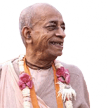Pariksit - a glorious personality: Difference between revisions
(Created page with "Category:Glorious Personalities Category:Glorious Personalities from Bhagavad Gita Category:Glorious Personalities from Srimad Bhagavatam Category:Glorious Perso...") |
No edit summary |
||
| Line 9: | Line 9: | ||
{{Personalitiesnav}} | {{Personalitiesnav}} | ||
<!----------------- BEGIN STANDARD HEADING -----------------> | <!----------------- BEGIN STANDARD HEADING -----------------> | ||
Srila Prabhupada's books, lectures, conversations and letters reveal the qualities of this glorious personality as seen in the Vaniquotes '''[[Vaniquotes:Category:Pariksit|Pariksit]]''' category. An introduction from his teachings is given below in the following | Srila Prabhupada's books, lectures, conversations and letters reveal the qualities of this glorious personality as seen in the Vaniquotes '''[[Vaniquotes:Category:Pariksit|Pariksit]]''' category. An introduction from his teachings is given below in the following 8 quotes. | ||
<!----------------- END STANDARD HEADING -----------------> | <!----------------- END STANDARD HEADING -----------------> | ||
---- | ---- | ||
== Quotes from Srila Prabhupada's teachings == | == Quotes from Srila Prabhupada's teachings == | ||
<!----------------- edit quote boxes below this line -----------------> | <!----------------- edit quote boxes below this line -----------------> | ||
{{VaniQuotebox| | {{VaniQuotebox|Sages are naturally inclined to do good to the common man, and when they see a personality like Maharaja Pariksit advance in devotional service, their pleasure knows no bounds, and they offer all blessings in their power|Sages are naturally inclined to do good to the common man, and when they see a personality like Mahārāja Parīkṣit advance in devotional service, their pleasure knows no bounds, and they offer all blessings in their power. The devotional service of the Lord is so auspicious that all demigods and sages, up to the Lord Himself, became pleased with the devotee, and therefore the devotee finds everything auspicious. '''(Śrīmad-Bhāgavatam 1.19.19)'''}} | ||
{{VaniQuotebox| | {{VaniQuotebox|King Pariksit affords a good example of bhava. When sitting on the bank of the Ganges waiting to meet his death due to the curse of a brahmana boy he said...|King Parīkṣit affords a good example of bhāva. When sitting on the bank of the Ganges waiting to meet his death due to the curse of a brāhmaṇa boy, he said: "All the brāhmaṇas present here, as well as Mother Ganges, should know that I am a soul completely surrendered to Kṛṣṇa. I do not mind if I am immediately bitten by the snake sent by the brāhmaṇa boy. Let the snake bite me as it likes. I shall be pleased if all of you present here will go on chanting the message of Kṛṣṇa. '''(Teachings of Lord Caitanya, Chapter 13)'''}} | ||
{{VaniQuotebox| | {{VaniQuotebox|A responsible king like Maharaja Pariksit could not allow the friend of irreligiosity to flourish in his kingdom at the cost of the good fame of the Pandavas|Mahārāja Yudhiṣṭhira and his descendants like Mahārāja Parīkṣit to rule the world, and therefore a responsible king like Mahārāja Parīkṣit could not allow the friend of irreligiosity to flourish in his kingdom at the cost of the good fame of the Pāṇḍavas. That is the way of wiping out corruption in the state, and not otherwise. The friends of irreligiosity should be banished from the state, and that will save the state from corruption. '''(Śrīmad-Bhāgavatam 1.17.31)'''}} | ||
{{VaniQuotebox| | {{VaniQuotebox|Janamejaya invaded Taksasila (Ajanta), and he decided to avenge the unlawful curse upon his great father, Maharaja Pariksit|Mahārāja Janamejaya begot two sons of the names Jñātānīka and Śaṅkukarṇa. He celebrated several sacrifices in the Kurukṣetra pilgrimage site, and he had three younger brothers named Śrutasena, Ugrasena and Bhīmasena II. He invaded Takṣaśilā (Ajanta), and he decided to avenge the unlawful curse upon his great father, Mahārāja Parīkṣit. He performed a great sacrifice called Sarpa-yajña, to kill the race of serpents, including the takṣaka, which had bitten his father to death. '''(Śrīmad-Bhāgavatam 1.16.2)'''}} | ||
{{VaniQuotebox| | {{VaniQuotebox|People in the time of Maharaja Pariksit were happy, and the animals were given proper protection because the executive head was not whimsical or ignorant of God's law|Any great man of the material world is, after all, a conditioned soul. He is bound by his hands and feet by the ropes of material nature, and still the foolish conditioned soul thinks of himself as free to act by his whimsical sentiments. The conclusion is that people in the time of Mahārāja Parīkṣit were happy, and the animals were given proper protection because the executive head was not whimsical or ignorant of God's law. '''(Śrīmad-Bhāgavatam 1.17.10-11)'''}} | ||
{{VaniQuotebox| | {{VaniQuotebox|Parvata Muni is a devarsi, or a great sage amongst the demigods, like Narada. He was present along with Narada at the sacrificial ceremony of Maharaja Janamejaya, son of Maharaja Pariksit|Parvata Muni is also a devarṣi, or a great sage amongst the demigods, like Nārada. He was present along with Nārada at the sacrificial ceremony of Mahārāja Janamejaya, son of Mahārāja Parīkṣit. In this sacrifice all the snakes of the world were to be killed. Parvata Muni and Nārada Muni are called Gandharvas also because they can travel in the air singing the glories of the Lord. '''(Śrīmad-Bhāgavatam 1.9.6-7)'''}} | ||
{{VaniQuotebox| | {{VaniQuotebox|It is very auspicious to hear always about Krsna. So Maharaja Pariksit requested Sukadeva Gosvami to narrate the activities of Krsna so that he could engage his mind in Krsna|It is very auspicious, therefore, to hear always about Kṛṣṇa. So Mahārāja Parīkṣit requested Śukadeva Gosvāmī to narrate the activities of Kṛṣṇa so that he could engage his mind in Kṛṣṇa. The activities of Kṛṣṇa are nondifferent from Kṛṣṇa Himself. As long as one is engaged in hearing such transcendental activities of Kṛṣṇa, he remains aloof from the conditional life of material existence. '''(Śrīmad-Bhāgavatam 2.1.1)'''}} | ||
{{VaniQuotebox| | {{VaniQuotebox|A devotee like Maharaja Pariksit does not care a fig for the moon or, for that matter, any of the material planets|A devotee like Mahārāja Parīkṣit does not care a fig for the moon or, for that matter, any of the material planets. So when he was assured of his death on a fixed date, he became more determined in the transcendental loving service of Lord Kṛṣṇa by complete fasting on the bank of the transcendental River Yamunā, which flows down by the capital of Hastināpura (in the Delhi state). '''(Śrīmad-Bhāgavatam 1.19.5)'''}} | ||
<!----------------- edit quote boxes above this line -----------------> | <!----------------- edit quote boxes above this line -----------------> | ||
Latest revision as of 04:32, 21 December 2016
INTRODUCTION TEXT TO BE WRITTEN
Srila Prabhupada's books, lectures, conversations and letters reveal the qualities of this glorious personality as seen in the Vaniquotes Pariksit category. An introduction from his teachings is given below in the following 8 quotes.
Quotes from Srila Prabhupada's teachings
Pariksit - explore more within this category.
Vanipedia has now over 215 introductory articles compiled from Srila Prabhupada's teachings under the series titled Glorious Personalities. All these articles can be seen in the Table of Content on the right side of this article and also here in this Umbrella Category. Browse through them to relish the breadth and depth of Srila Prabhupada's teachings - There is an attractive personality for everyone.







